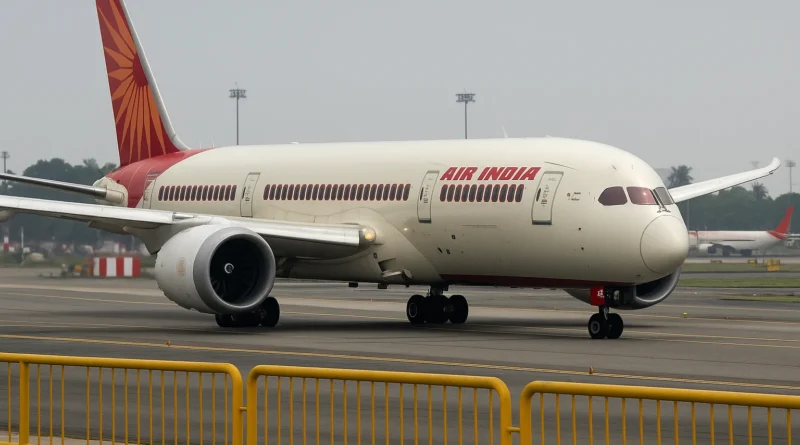Air India Faces Widespread Flight Disruptions Amidst Safety Checks and Geopolitical Tensions
New Delhi, India – Air India is currently experiencing significant disruptions to its flight schedule, particularly affecting its international wide-body operations. The airline has announced a temporary curtailment of 15% of its international flights on wide-body aircraft, effective immediately and continuing until at least mid-July. This widespread rescheduling and cancellation are attributed to a confluence of factors, including enhanced safety inspections following a recent tragic accident and escalating geopolitical tensions.
Reasons Behind the Disruptions
The primary catalyst for the current disruptions appears to be the fatal crash of Air India flight AI171 (a Boeing 787-8 Dreamliner) from Ahmedabad to London Gatwick on June 12, 2025. This unfortunate incident, which claimed 270 lives, prompted the Directorate General of Civil Aviation (DGCA) to order deeper and enhanced safety inspections on Air India’s entire Boeing 787 fleet. While the DGCA has stated that initial surveillance found “no major safety concerns” and that most aircraft are compliant, these rigorous checks have naturally led to increased turnaround times and reduced aircraft availability. As of recently, 26 out of 33 Boeing 787-8/9 aircraft have completed their checks and are cleared for service, with the remaining inspections expected to conclude in the coming days.
In addition to these mandatory safety checks, Air India has also cited geopolitical tensions in the Middle East and night curfews in the airspaces of several countries in Europe and East Asia as significant contributors to the operational strain. These factors have forced flights to take longer, circuitous routes, further impacting schedules and crew duty limitations. Furthermore, a “necessary cautious approach” being taken by engineering staff and pilots has also played a role in the disruptions.
The airline also confirmed the cancellation of individual flights due to maintenance and technical issues, some even after passengers had boarded, such as a Toronto-Delhi flight due to extended maintenance and a Dubai-Delhi flight for technical reasons. A Delhi-Bali flight also had to return mid-way due to a volcanic eruption near Bali airport, affecting schedules.
Impact and the Airline’s Response
In the six days following the Ahmedabad crash (June 12-17), Air India cancelled 83 wide-body flights, including 66 Dreamliners. This 15% reduction in international services aims to create greater operational stability, improve efficiency, and minimize inconvenience by ensuring more reserve aircraft are available for unplanned disruptions. Air India has also announced that it will undertake enhanced safety checks on its Boeing 777 fleet as an added precaution, a fleet crucial for its North America operations.
Air India has apologized to affected passengers and assured them that they will be informed in advance about any changes. The airline is offering passengers the choice to reschedule their travel without any additional cost or opt for a full refund. The revised schedule for international services, effective from June 20, 2025, is expected to be released shortly. Passengers are advised to check their flight status on the Air India website or app before heading to the airport. For refund tracking, the airline has provided guidelines on its website and app, promising to process refunds within 7 to 10 business days.
While the current disruptions pose a challenge, Air India maintains its commitment to safety and operational reliability as it continues its transformation under the Tata Group.

